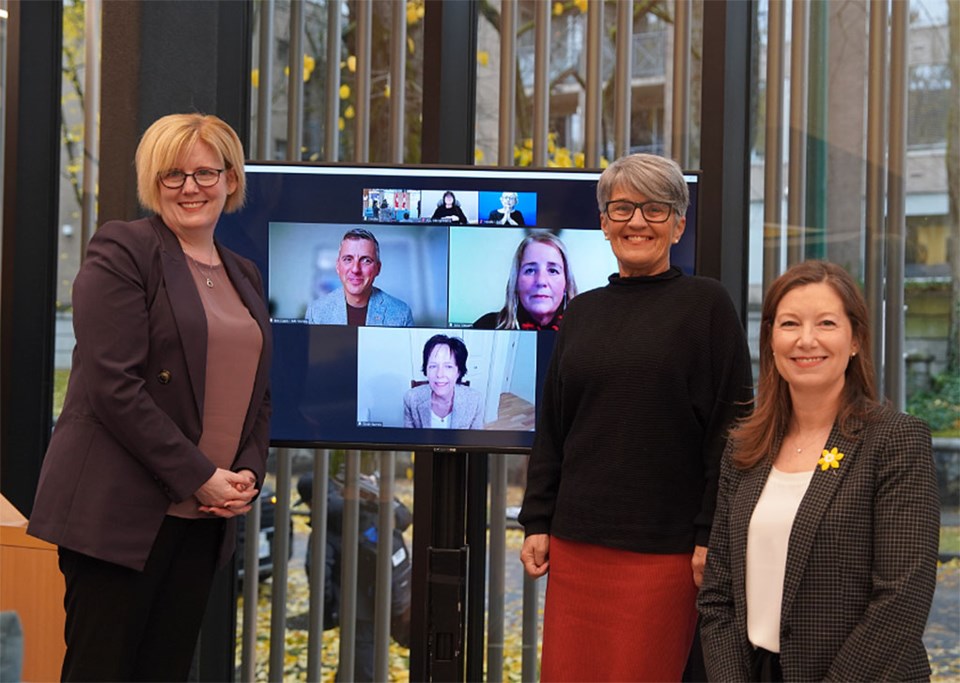Delta MP Carla Qualtrough was on hand in Vancouver on Friday (Nov.25) for a major announcement on changes to Employment Insurance (EI) for those facing illness or injury.
Qualtrough, Minister of Employment, Workforce Development and Disability Inclusion, and others were at the Canadian Cancer Society’s (CCS) regional care centre in Vancouver to announce the permanent extension of EI sickness benefits from 15 weeks to 26 weeks, beginning on Dec. 18, 2022.
Together with Andrea Seale, CEO of the CCS, Qualtrough listened to the stories of those in attendance and discussed how the extension of sickness benefits will help support Canadians facing illness, injury or quarantine.
A news release notes that the change to EI sickness benefits will provide approximately 169,000 Canadians per year with additional time and flexibility to recover so they can return to work after an illness, injury or quarantine.
Individuals who qualify and establish a new claim on or after Dec. 18, 2022, will be able to receive up to 26 weeks of EI sickness benefits if they are sick and require this time to recover. EI sickness benefits are paid at 55 per cent of the applicant’s average weekly insurable earnings, up to a maximum entitlement of $638 for 2022.
To align with this change, the maximum length of unpaid medical leave available to federally regulated private-sector employees will also be increased from 17 to 27 weeks under the Canada Labour Code, the government explained.
This change will come into effect on the same date as the extension of EI sickness benefits and will ensure that employees have the right to take unpaid job-protected leave while receiving the extended EI sickness benefits.
EI sickness benefits are designed as a short-term income replacement measure and will continue to complement a range of other supports available to Canadian workers for longer-term illnesses and disabilities including the Canada Pension Plan Disability benefit, benefits offered through private and employer insurance, as well as supports provided by provinces and territories.
“Our government has been clear: Canadians should have the supports they need to look after themselves and their families while recovering from an illness or injury. That’s why we’re working hard to build a more flexible and inclusive EI program for the 21st Century,” said Qualtrough.
“Extending EI sickness benefits from 15 to 26 weeks will provide workers in Canada with the time and flexibility they need to recover and return to work. With these measures, we’re making sure that workers across Canada are supported in the best way possible.”
The federal government in 2021 began a two-year consultation on EI reform to build an EI program that is more flexible, fairer and better suited to the needs of today's workers. The government notes it is currently analyzing the input received from stakeholders during the consultations. Their insights are helping to inform the design and path forward for modernizing the EI program.



